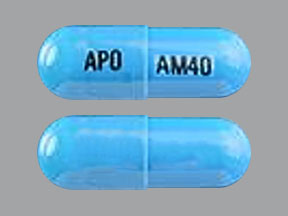
Atomoxetine Coupons & Savings Card – Discount Prices from $23.43
Generic for: Strattera
My prescription
Edit
40MG, Atomoxetine (30 Capsules)
Select pharmacy

CVS
$24.02
COUPON PRICE
Walmart
$23.43
COUPON PRICE
Walgreens
$26.34
COUPON PRICE
Albertsons
$31.72
COUPON PRICEAtomoxetine savings card
Show this card to your pharmacist
Walmart
$23.43
BIN
ID
PCN
GRP
019876
LHE1CD7A1B
CHIPPO
LHX
Powered by
More prescriptions for adhd
More prescriptions for adhd
Price history for Strattera (brand) & Atomoxetine (generic)
30 Capsules, 40MG
Average retail price for Strattera
Average retail price for Atomoxetine
Average SaveHealth price for Atomoxetine
Our price history data is based on aggregated prescription data collected from participating pharmacies in America. Our prescription data updates daily to reflect the latest price changes. If you notice a missing data point, it means there wasn't sufficient data available to generate a monetary value for that date.
We analyzed Atomoxetine prices for (40MG, 30 Capsules) over the last 12 months. The average retail price was $43.16, while the average price using the SaveHealth discount card was $38.61. That's a savings of approximately 10.54% when using our Atomoxetine coupon.
Compared to the generic version, Strattera had an average price of $529.14 over the same time period. With the SaveHealth savings card, Atomoxetine is 92.70% cheaper on average than Strattera.
*Retail prices are based on pharmacy claims data, and may not be accurate when we don't have enough claims.
Atomoxetine dosage forms
Dosage Quantity Price from Per unit 10MG 30 Capsules $17.36 $0.58 18MG 30 Capsules $20.18 $0.67 25MG 1 Capsule $3.05 $3.05 25MG 30 Capsules $18.92 $0.63 40MG 30 Capsules $23.43 $0.78 40MG 1 Capsule $3.20 $3.20 60MG 1 Capsule $3.04 $3.04 60MG 30 Capsules $18.84 $0.63 80MG 30 Capsules $24.36 $0.81 100MG 30 Capsules $21.07 $0.70
| Dosage | Quantity | Price from | Per unit |
|---|---|---|---|
| 10MG | 30 Capsules | $17.36 | $0.58 |
| 18MG | 30 Capsules | $20.18 | $0.67 |
| 25MG | 1 Capsule | $3.05 | $3.05 |
| 25MG | 30 Capsules | $18.92 | $0.63 |
| 40MG | 30 Capsules | $23.43 | $0.78 |
| 40MG | 1 Capsule | $3.20 | $3.20 |
| 60MG | 1 Capsule | $3.04 | $3.04 |
| 60MG | 30 Capsules | $18.84 | $0.63 |
| 80MG | 30 Capsules | $24.36 | $0.81 |
| 100MG | 30 Capsules | $21.07 | $0.70 |
Atomoxetine Warnings
Atomoxetine (Strattera) is a medication used for treating attention-deficit hyperactivity disorder (ADHD). While it can be effective, it is important to be aware of potential risks and safety precautions associated with its use. Please consider the following information and consult with your healthcare provider for any concerns:
Suicidal Thoughts and Behavior Changes: Atomoxetine may increase the risk of suicidal thoughts or behaviors, especially in children and teenagers. This risk is higher during the initial treatment months and when dosages are adjusted. Watch for mood changes, unusual behaviors, or thoughts of self-harm, and contact your doctor immediately if these occur.
Liver Damage: Though rare, atomoxetine can cause serious liver problems, potentially leading to liver failure. Symptoms to watch for include abdominal swelling, yellowing of the skin or eyes, dark urine, and severe stomach pain. Seek medical attention promptly if these symptoms appear, as you may need to stop the medication.
Cardiovascular Concerns: Atomoxetine can increase blood pressure and heart rate, and there is a risk of severe heart issues like stroke or heart attack, especially in individuals with pre-existing heart conditions. Ensure your provider is aware of any heart history before beginning treatment and report symptoms like chest pain, fainting, or irregular heartbeat.
Bipolar Disorder and Mood Swings: Individuals with bipolar disorder may experience manic or mixed episodes when taking atomoxetine. If you have a personal or family history of bipolar disorder or other mental health conditions, discuss this with your provider and monitor for unusual mood changes.
Behavioral Changes: Some users may experience new or worsening mental health symptoms, including hallucinations, aggression, or unclear thinking. Immediate consultation with your healthcare provider is necessary if these occur.
Prolonged Erection: A rare side effect is a prolonged, painful erection lasting more than four hours. If this arises, discontinue use and seek medical help immediately to prevent permanent damage.
Slowed Growth in Children: Children taking atomoxetine may experience slowed growth in height and weight during the first year of treatment. Regular monitoring by a healthcare provider is recommended, and treatment may be paused if significant growth delays are detected.
Contraindications: Do not use atomoxetine if you are currently taking or have recently taken monoamine oxidase inhibitors (MAOIs), have narrow-angle glaucoma, pheochromocytoma, or certain severe heart or blood vessel problems. Consult your healthcare provider if any of these conditions apply to you.
Ensure you discuss all potential risks and benefits with your healthcare provider before starting atomoxetine, and report any adverse effects promptly.
Atomoxetine Side Effects
Common side effects:
- Nausea
- Dry mouth
- Decreased appetite
- Trouble sleeping
- Fatigue
- Constipation
- Dizziness
- Drowsiness
- Decrease in sexual ability or desire in men
- Menstrual changes in women
Less common but important to monitor:
- Headaches
- Stomach pain
- Vomiting
- Erectile dysfunction
- Issues with urination
Serious side effects:
- Symptoms of liver damage
- Heart attack
- Stroke
- Prolonged, painful erection
- Allergic reaction
Atomoxetine Interactions
Interactions with high risk of serious adverse effects and should be avoided:
- Isocarboxazid
- Linezolid
- Methylene Blue
- Phenelzine
- Procarbazine
- Rasagiline
- Safinamide
- Selegiline
- Tranylcypromine
Interactions with moderate risk that may require dose adjustment, closer monitoring, or timing changes:
Interactions with low risk that usually do not require a change in therapy:
- Amitriptyline
- Amoxapine
- Clomipramine
- Desipramine
- Dibenzepin
- Dothiepin
- Imipramine
- Lofepramine
- Nortriptyline
- Opipramol
- Protriptyline
- Trimipramine
